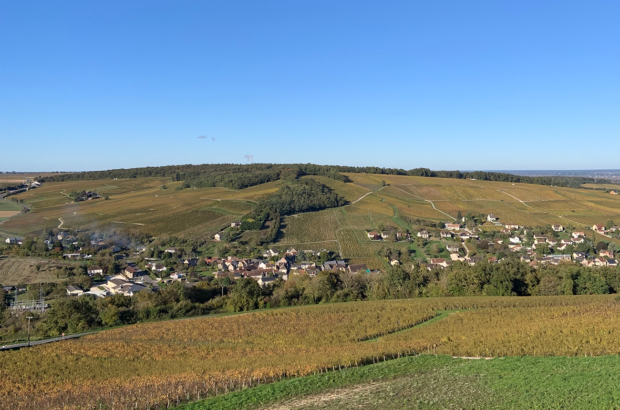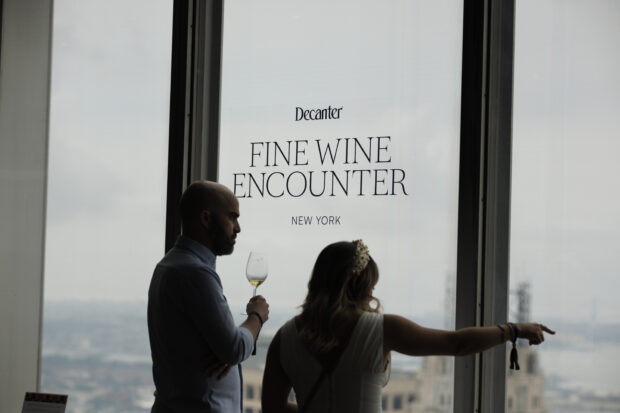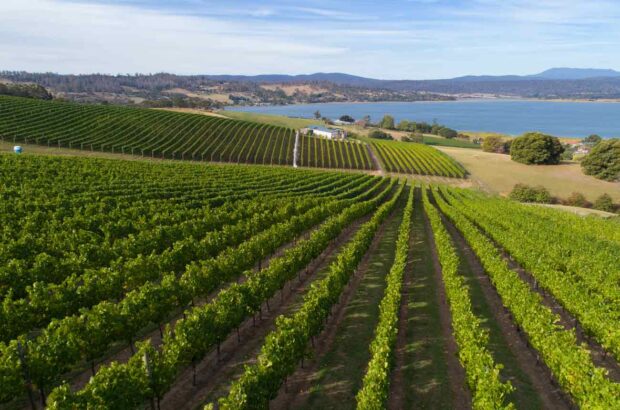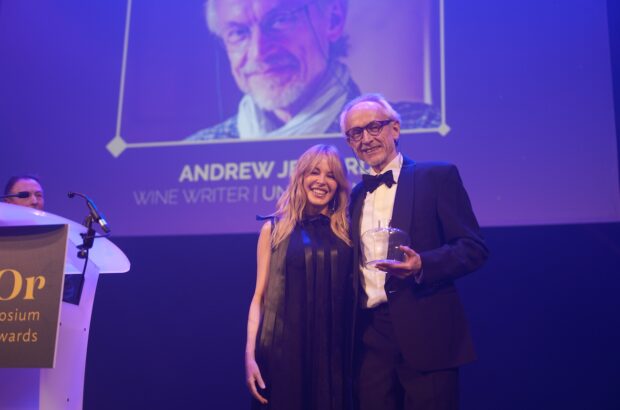Fierce anti-alcohol lobbies, poor exports and falling consumption levels… Is France falling out of love with wine, asks Panos Kakaviatos
The culture of wine in France is dying, says Olivier Magny, founder of O Château which organises wine tastings in Paris. According to Magny, in the past 30 years politicians and the media have ‘almost criminalised’ wine consumption.
‘Drinking wine in France is not the sophisticated thing it is elsewhere. Since 1970, wine consumption here has halved; meanwhile, consumption of anti-depressants has multiplied fivefold. Yet wine is being vilified. This is the new French paradox.’
It was in 1991 that US television news programme 60 Minutes broadcast an influential feature on the original ‘French paradox’, the observation that the French have lower cases of coronary heart disease despite a diet rich in saturated fats. Since then, there has been a slew of studies proclaiming the health benefits of wine, mainly reducing the risk of heart disease from polyphenols in tannic wines.
And over the years, annual consumption of wine around the world has risen – from four litres per person in early 1970s US (and six litres in the UK) to 11 litres per US person (and 19 in the UK) today.
The situation is reversed in France. Per capita annual consumption has halved over a similar period, from 120 litres in the 1970s to 60 litres by 2010. The drop can partly be explained by demographic shifts, also seen in other Old World wine producing countries such as Italy and Spain, where wine used to be a populist, blue-collar ‘everyman’s drink’. Today it is enjoyed more by the middle-to-upper classes and white-collar workers – a smaller proportion of the population.
However, what has really dented wine enthusiasm in France in recent times are campaigns by influential anti-alcohol groups to fight drink-driving, campaigns that highlight the health risks of wine, and the use of pesticides in viticulture.
Magny, whose customers are 70% non-French, observes that ‘drinking wine is almost a guilty habit these days in France’. I was reminded of this at a dinner party in Strasbourg to which I brought a bottle of Bordeaux. One guest remarked, between sips: ‘This is good, but
I gather research shows wine can cause cancer.’
Such health concerns were raised in a February 2009 report from the French Cancer Institute, backed by international research, which found that 100ml of wine a day could increase the risk of cancer (100ml, the official measurement in France for a glass of wine, is almost half the size of the 175ml glass served in the UK or US).
Dr Alain Rigaud, president of the French anti-alcohol lobby group ANPAA (Association Nationale de Prévention en Alcoologie et Addictologie), questions the benefits of wine, stressing that ‘people forget wine is an alcoholic drink with the same risks as other alcoholic drinks. And the alcoholic drink of choice in France is wine’. The statistics back him up. Of those in France who say they drink alcohol, 81% drink wine, ahead of spirits (58%) and beer (54%).
Furthermore, the measure used for the Cancer Institute’s study findings, and for wine industry guidelines, is based on a wine with 12% alcohol. But many French reds contain at least 13%. In some regions, like Châteauneuf-du-Pape, wine often reaches 15%, meaning two glasses can approach the alcohol levels of three glasses of a moderate-strength wine.
Inside attacks
A late-2008 statement from Crédoc, a French research centre studying lifestyle habits, proclaimed that wine, once seen as ‘a product of terroir, a symbol of France’s gastronomic heritage, today is perceived as risky’. Crédoc cited a survey which found that 51% of respondents placed wine second on a list of ‘risky products’, just behind cured meats and cold cuts.
[In 2003, only 26% of French people considered wine risky.] These sentiments were reinforced by TV news reports such as ‘Wine: is it still natural?’, viewed by millions in October 2008 on the national channel France 2, which claimed pesticide traces in wine may lead to illness, and described chaptalisation (the addition of sugar) and the use of non-indigenous yeasts in fermentation as ‘unnatural’.
Protest letters were sent to the channel by French wine industry representatives, reflecting a growing frustration with the anti-alcohol lobby. Yet the very same month came news of a proposed new law to tackle binge drinking in France. Article 24 of the Hospital, Health, Patient and Territory bill would have made it illegal to offer free alcoholic drinks for promotional reasons, including wine tastings such as Bordeaux’s en primeur campaign.
The bill was passed in May 2009, without a ban on tastings. Marie-Christine Tarby-Maire, president of the industry action group Vin et Société said: ‘We certainly understood the problem, but wine tastings are the life blood of sales. We had to work hard with parliamentarians and the health ministry to remove that clause.’
Another proposal last year would have seen the extension of France’s Loi Evin, which prohibits alcohol advertising on television or in cinemas, to also cover the internet. The move failed. ‘We were only made aware of these proposals 15 days before they were submitted for debate,’ Tarby-Maire said. She claims the French government is biased against the wine industry. ‘The EU at least includes wine industry representatives in any discussions concerning possible initiatives about alcohol. That’s not the case in France.’
Vin et Société includes representatives from all major French wine appellations, from table wine producers to big players in Bordeaux and Burgundy. Yet its annual budget averages just €200,000 – a far cry from the €65m that funds the ANPAA. Last year, Vin et Société members voted for a €2m annual increase in funds to counter the effects of the anti-alcohol lobby and what it calls the French government’s ‘vilifying’ of wine.
The initiative was announced by Pierre-Henry Gagey, then president of the BIVB, the Burgundy wine trade body, last November, who called it a move against the ‘prohibitionist agenda ravaging France’. His successor, Michel Baldassini, was preparing for a meeting in Paris with Vin et Société as this article went to press. His message was urgent: ‘We produce 45m hectolitres of wine a year and export one third of that, so national consumption is about 30 million.
Yet we are losing one million hectolitres a year [in domestic consumption]. When the anti-alcohol lobby attacks wine, it hurts the industry, especially as we face competition in export markets.’ French wine saw a 12% decline in UK sales last year. Tarby-Maire claims increased funding for Vin et Société will counter negative publicity through more vocal support of scientific studies which show the beneficial health effects of wine.
It will stress the work done to reduce pesticides in vineyards, and show that the risk of illness is exaggerated. A recent campaign called A Toi de Choisir (‘For you to choose’) aims to fight youth alcoholism. Two new websites propose interactive information for teens with education tools designed for teachers and parents. The organisation will also place ads in publications targeting youth aged 13 to 16 as well as adults, ‘to educate them about wine and moderation’.
The youth focus is key. In France, it has long been illegal for under 18s to buy hard liquor and spirits. But only since 2009 has the law applied to wine and beer. Despite this tightened approach, there are signs that the Government recognises wine’s place in French culture, and is keen to treat it differently to other alcoholic drinks.
A new government-commissioned report recommends that university canteens hold wine-tasting sessions to educate the young in the virtues of moderate consumption. The report, commissioned by the minister for higher education, gives a range of proposals on students’ consumption, but it is the proposal outlining ‘initiation to a moderate consumption of wine’ that has attracted most comment.
Jean-Robert Pitte, former director of Paris’s Sorbonne University, believes ‘allowing [students] to taste wine in very moderate quantities’ will ‘show them that it is a pleasure, good for their health, and part of their national heritage.’ The ANPAA’s Rigaud, though, said it was ‘shocking’ that such respected figures could advocate such an approach. ‘It’s naive to think we are going to reduce binge drinking this way,’ he said, dismissing the proposal as wine industry marketing.
Being realistic
The wine industry, though, is doing what it can to curry political favour. Vin et Société will promote the recently launched Bienvenue à la Modération (‘Welcome to moderation’) campaign, which defines ‘moderation’ as three 100ml glasses of wine a day for men and two 100ml glasses for women. It is worth noting, though, that the independent World Cancer Research Fund advises a maximum of two glasses a day for men and one glass for women.
In the scientific community, researchers agree that too many reports tout the health benefits of wine without also noting the risks associated. ‘Wine, viticulture and the wine-loving tradition in France indisputably constitute a national heritage,’ says Rigaud. ‘But this should not erase the fact that wine is an alcoholic beverage that contains 10 to 15 grams of ethanol per 100ml.
To consume more than 20 or 30 grams a day could risk one’s health.’ A silver lining, perhaps, for the wine industry are demographic trends which indicate that even though fewer people are drinking wine, increasing numbers of educated people appreciate it ‘as a drink not to over indulge in, but to appreciate over a fine meal’, says Tarby-Maire. ‘So it is a question of education and of spreading this message to the larger public.’
O Château’s Magny hopes so. ‘The anti-wine lobby has been tearing down wine culture in France for three decades. The sad part is that French authorities are the accomplices of this evolution when they issue reports with bogus calculations to tell the French that wine gives you cancer,’ he said.
‘Of course it’s correct that there should be a crack-down on drink-driving, but that should not destroy an industry and a culture that is several thousand years old. We – French people who drink and enjoy wine – need to start La Résistance.’
Written by Panos Kakaviatos






